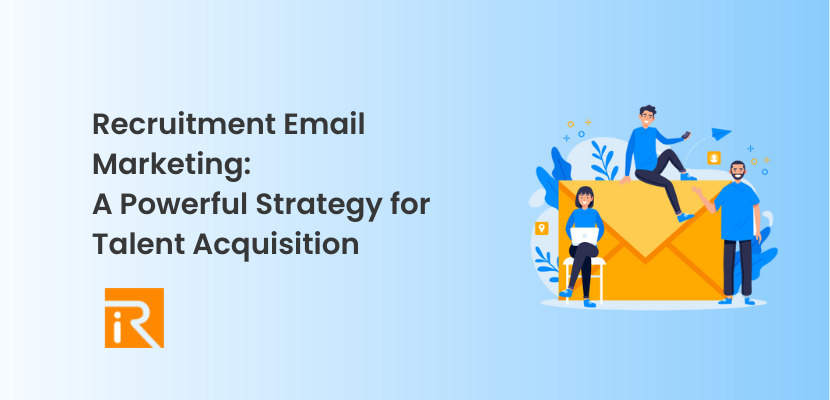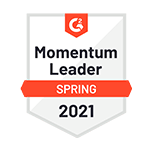In today’s competitive job market, attracting top talent can be a daunting task for recruiters and hiring managers. Traditional recruitment methods are no longer sufficient to reach and engage with the desired candidates. This is where recruitment email marketing comes into play. By leveraging the power of email marketing, recruiters can effectively connect with potential candidates, build relationships, and drive successful hiring campaigns. In this article, we will explore the intricacies of recruitment email marketing and how it can revolutionize your talent acquisition efforts.
The Basics of Recruitment Email Marketing
Recruitment email marketing involves the strategic use of email campaigns to attract, engage, and convert potential candidates. It is a cost-effective and efficient method to reach a large audience and communicate your organization’s employment opportunities. With the right approach, recruitment email marketing can help you build a talent pipeline, increase applicant quality, and streamline your hiring process.
Building a targeted email list
As mentioned earlier, building a targeted email list is crucial for successful recruitment email marketing. By focusing on individuals who are likely to be interested in your job openings, you can increase the effectiveness of your email campaigns. Implement strategies such as utilizing your existing talent database, placing opt-in forms on your website, running social media campaigns, and leveraging partnerships to expand your email list.
Automation and drip campaigns
Automation tools can streamline your recruitment email marketing efforts. Set up drip campaigns, which are a series of automated emails sent over a specific time period, to nurture and engage potential candidates. Drip campaigns can include information about your company culture, employee testimonials, and specific job opportunities tailored to the recipient’s interests.
Segmentation and personalization
Segmenting your email list and personalizing your emails based on various criteria allows you to deliver more targeted and relevant content. By understanding the unique preferences and qualifications of your recipients, you can tailor your messaging and increase engagement. Segmentation can be based on factors such as job function, industry, geographic location, or previous interaction with your emails.
Engaging and compelling content
Crafting engaging email content, as discussed earlier, is crucial to capture the attention of potential candidates. Use personalization, storytelling, visuals, and social proof to make your emails stand out. Clearly communicate the benefits of working for your organization and highlight career growth opportunities. Include clear calls-to-action that encourage recipients to take the desired action, such as applying for a job or exploring more information.
Tracking and analytics
Utilize email marketing analytics to track the performance of your recruitment email campaigns. Monitor metrics such as open rates, click-through rates, conversion rates, and unsubscribe rates. Analyzing these metrics helps you understand what resonates with your audience, make data-driven improvements, and optimize your email marketing strategy over time.
Testing and optimization
Conduct A/B testing to experiment with different elements of your emails, such as subject lines, visuals, and call-to-action placement. Test different variations to determine what drives better engagement and conversions. Continuously optimize your email campaigns based on the insights gained from testing and tracking.
Compliance with regulations
Ensure that your recruitment email marketing complies with relevant data protection and privacy regulations, such as GDPR (General Data Protection Regulation) or CAN-SPAM Act. Obtain consent from recipients before adding them to your email list, provide clear opt-out options, and handle personal data securely.
Integration with applicant tracking system (ATS)
To streamline your hiring process, integrate your recruitment email marketing with your ATS. This integration allows you to track candidate interactions with your emails and seamlessly transfer relevant data between systems. It improves efficiency and ensures a seamless candidate experience.
By understanding and implementing the basics of recruitment email marketing, you can effectively engage with potential candidates, strengthen your employer brand, and attract top talent to your organization. Regularly evaluate the performance of your campaigns, adapt to changes in the market, and refine your strategy to achieve the best results.
Crafting Engaging Email Content
One of the key aspects of successful recruitment email marketing is creating engaging and compelling email content. Your emails should capture the attention of the recipients and entice them to take action. Here are some tips to craft effective email content:
Subject line optimization
The subject line is the first thing recipients see, so it’s essential to make it attention-grabbing and relevant. Use keywords related to recruitment and job openings to indicate the purpose of the email. Experiment with different subject lines to find what resonates best with your audience.
Compelling opening
Begin your email with a strong and personalized opening that captures the recipient’s interest. Highlight key benefits or unique selling points of the job opportunity or your organization. Use language that evokes excitement and curiosity, encouraging recipients to continue reading.
Storytelling
Incorporate storytelling elements into your email content. Share success stories of previous hires or employees who have thrived in similar roles. Humanize the recruitment process by showcasing the positive impact working with your organization can have on a candidate’s career.
Visuals and formatting
Break up the text with bullet points, subheadings, and visuals to make the email more scannable and visually appealing. Use high-quality images or graphics that align with your employer brand and the job opportunity you’re promoting.
Highlight company culture
Showcase your organization’s culture, values, and work environment in the email content. This can include testimonials from current employees, photos or videos of team activities, or descriptions of unique perks and benefits. Demonstrating a positive and inclusive work culture can be a compelling factor for potential candidates.
Social proof
Incorporate social proof in your email content to build trust and credibility. Include quotes or testimonials from satisfied employees, industry awards or recognition your organization has received, or statistics that showcase your company’s success or growth.
Benefits and career growth opportunities
Clearly outline the benefits and growth opportunities associated with the job position. Emphasize the potential for skill development, career advancement, training programs, or mentorship opportunities. This helps candidates see the long-term value of working with your organization.
Mobile-friendly design
With the majority of emails being opened on mobile devices, ensure that your email content is optimized for mobile viewing. Use responsive design principles, keep the email width narrow, and use a legible font size.
Proofread and test
Before sending out your emails, thoroughly proofread the content to avoid grammatical errors or typos. Additionally, test the email across different email clients and devices to ensure it displays correctly and functions properly.
Segmentation and personalization
Leverage the data you have about your email subscribers to personalize the content further. Tailor the email based on the recipient’s location, job function, or any other relevant criteria. This level of personalization increases the relevance of the email and improves engagement.
By implementing these strategies, you can craft engaging and compelling email content that resonates with potential candidates. Remember to continually analyze the performance of your emails, track metrics such as open rates and click-through rates, and make adjustments as needed to optimize your recruitment email marketing campaigns.
Building a Targeted Email List
To maximize the impact of your recruitment email marketing efforts, it is crucial to build a targeted email list comprising individuals who are likely to be interested in your job openings. Here are some strategies to build a quality email list:
Content marketing
Create informative and engaging content related to job search, career development, and industry insights. Publish this content on your website or blog, and include a call-to-action inviting readers to subscribe to your email list for regular updates. This strategy not only attracts potential candidates but also establishes your brand as an authority in the industry.
Webinars and events
Host webinars or participate in industry events where you can showcase your expertise and provide valuable insights to attendees. During these events, offer participants the option to sign up for your email list to receive future updates, job alerts, or exclusive content.
Referral programs
Encourage your existing employees, clients, or business partners to refer potential candidates and reward them for successful referrals. Include an email subscription option in the referral process so that interested candidates can join your email list.
Lead magnets and incentives
Create valuable resources such as e-books, whitepapers, or industry reports that are relevant to your target audience. Offer these resources as free downloads in exchange for email subscriptions. This strategy attracts individuals who are genuinely interested in the content you provide.
Partnerships and collaborations
Identify complementary businesses or organizations within your industry and explore opportunities for partnerships or collaborations. This could involve guest posting on each other’s blogs, co-hosting webinars or events, or cross-promoting each other’s email lists. By leveraging each other’s networks, you can expand your reach and attract a wider audience to your email list.
Segmentation and personalization
Once you have started building your email list, segment it based on various criteria such as job function, industry, or location. This allows you to send targeted and personalized emails to specific segments of your audience, increasing the relevance and effectiveness of your email campaigns.
Automating Email Campaigns
Automation plays a significant role in recruitment email marketing. By setting up automated email campaigns, you can nurture candidate relationships and deliver timely messages throughout the hiring process. Here are some examples of automated email campaigns:
Define Your Goals and Objectives
Before diving into email automation, clearly define your goals and objectives. Are you aiming to increase sales, nurture leads, or improve customer retention? By identifying your objectives, you can create targeted campaigns that align with your business goals.
Build a Segmented Email List
Segmentation is key to delivering relevant content to your subscribers. Divide your email list into segments based on demographics, purchase behavior, engagement level, or any other relevant criteria. This allows you to tailor your messages to each segment’s preferences and needs.
Craft Compelling and Personalized Content
Automation doesn’t mean sacrificing personalization. Create compelling and personalized content that resonates with your audience. Use dynamic tags to insert subscribers’ names or other relevant information to make your emails more personal and engaging.
Test and Optimize
Continuously test and optimize your email campaigns to improve their performance. Experiment with different subject lines, email designs, and calls-to-action to find what resonates best with your audience. Use A/B testing to compare different versions of your emails and make data-driven decisions.
Monitor and Analyze
Regularly monitor and analyze the performance of your automated email campaigns. Track metrics like open rates, click-through rates, conversion rates, and unsubscribe rates to understand how your campaigns are performing. Use this data to make informed decisions and refine your strategies.
Leveraging LSI Keywords for Recruitment Email Marketing Success
LSI (Latent Semantic Indexing) keywords are terms and phrases that are closely related to the primary keyword. Incorporating LSI keywords in your recruitment email marketing strategy can boost your search engine visibility and improve the overall effectiveness of your campaigns. Let’s explore some LSI keywords that can be utilized in recruitment email marketing:
- “Employee referral programs”
- “Candidate engagement strategies”
- “Employer branding techniques”
- “Onboarding best practices”
- “Job application tips”
- “Interview preparation guidance”
- “Remote work opportunities”
By integrating these LSI keywords into your email content, subject lines, and meta tags, you can increase your chances of reaching the right candidates and driving higher engagement rates.
Why LSI Keywords Matter for Recruitment Email Marketing
Improved Relevance
LSI keywords enable you to create more contextually relevant content. When your email recipients see keywords that are related to their job search, they are more likely to engage with your email and take the desired action.
Higher Search Engine Rankings
By incorporating LSI keywords into your email marketing content, you increase the chances of ranking higher in search engine results. This can lead to greater visibility and exposure to potential candidates.
Enhanced User Experience
LSI keywords help search engines understand the purpose and relevance of your content, which ultimately improves the user experience. When your emails provide valuable and targeted information, recipients are more likely to view your brand positively and engage further.
How to Find LSI Keywords for Recruitment Email Marketing
Finding the right LSI keywords can seem daunting, but there are several effective methods you can employ:
Google Related Searches
Conduct a search for your main keyword on Google and scroll down to the bottom of the search results page. You will find a section titled “Searches related to [your keyword].” These related searches can serve as valuable LSI keyword suggestions.
LSI Keyword Tools
Several online tools can generate LSI keyword suggestions based on your main keyword. Tools like LSIGraph and Keyword Planner can help you uncover relevant terms to include in your recruitment email marketing content.
Semantic Analysis
Analyze the content of top-ranking pages in search engine results for your main keyword. Look for recurring terms and phrases, as they are likely to be LSI keywords.
Best Practices for Using LSI Keywords in Recruitment Email Marketing
Natural Integration
While it’s important to incorporate LSI keywords into your email content, it’s equally crucial to do so naturally. Avoid overstuffing keywords, as it can make your emails appear spammy and harm your brand reputation.
Varied Keyword Placement
Distribute your LSI keywords throughout your email content, including the subject line, headings, body, and call-to-action. This ensures that your email is optimized for both search engines and readers.
Personalization
Leverage LSI keywords to personalize your recruitment emails. Tailor your content to match the specific needs and preferences of your target audience, increasing the chances of engagement and response.
A/B Testing
Experiment with different variations of LSI keywords to determine which ones yield the best results. A/B testing allows you to refine your email marketing strategy and additionally, optimize your campaigns for maximum effectiveness.
The Benefits of Recruitment Email Marketing
Building Brand Awareness
Email marketing provides recruiters with a unique opportunity to build brand awareness among their target audience. By consistently delivering valuable and relevant content to candidates’ inboxes, recruiters can establish themselves as industry leaders and trusted advisors. Therefore, when the time comes for candidates to make a career move, they are more likely to consider companies they are familiar with and have a positive perception of. This brand recognition gives recruiters a competitive edge in attracting top talent.
Personalized Communication
One of the key advantages of email marketing is its ability to deliver personalized communication. Recruiters can segment their email lists based on various factors such as job preferences, experience level, or location. Additionally, this allows them to tailor their messages to specific groups of candidates, increasing the chances of engagement and response. Therefore, personalized emails make candidates feel valued and appreciated, leading to higher conversion rates and improved overall recruitment success.
Cost-Effectiveness
Compared to traditional recruitment methods such as print advertising or job fairs, email marketing offers a cost-effective solution for recruiters. With minimal expenses involved in designing and sending emails, recruiters can reach a large number of candidates without breaking the bank. Additionally, email marketing platforms provide valuable analytics and tracking tools, allowing recruiters to measure the success of their campaigns and make data-driven decisions for future recruitment efforts.
Increased Efficiency
Recruitment email marketing streamlines the hiring process and improves overall efficiency for recruiters. Instead of manually reviewing countless resumes and conducting multiple rounds of interviews, recruiters can use email campaigns to pre-screen candidates and filter out the most suitable ones. Additionally, automated email sequences can be set up to guide candidates through the application process, provide relevant information, and keep them engaged. So, this saves recruiters time and resources, enabling them to focus on other critical aspects of their job.
Long-Term Relationship Building
Recruitment is not just about filling immediate job vacancies; it’s about building long-term relationships with candidates. Email marketing allows recruiters to nurture relationships with potential candidates, even if they are not actively seeking new opportunities at the moment. Additionally, by consistently providing valuable content, industry insights, and networking opportunities, recruiters can stay top-of-mind with candidates. Therefore, when the right job opening arises, these candidates are more likely to consider the recruiter’s company as their first choice.
Conclusion
Consequently, recruitment email marketing is a powerful strategy for talent acquisition that can revolutionize the way you attract and engage with potential candidates. By crafting engaging email content, building a targeted email list, automating campaigns, and leveraging LSI keywords, you can enhance your recruitment efforts and drive successful hiring campaigns. Therefore, stay up-to-date with the latest trends and best practices in recruitment email marketing to stay ahead of the competition and secure the top talent your organization deserves.
FAQs
Q: How can recruitment email marketing benefit my organization?
Recruitment email marketing can benefit your organization in several ways. It helps you reach a wider audience, build relationships with potential candidates, and streamline your hiring process. By utilizing email marketing techniques, you can attract top talent, increase applicant quality, and reduce time-to-hire.
Q: Is recruitment email marketing cost-effective?
Yes, recruitment email marketing is highly cost-effective compared to traditional recruitment methods. With minimal investment, you can reach a large audience and communicate your employment opportunities directly to their inboxes. This targeted approach ensures that your message reaches the right candidates, maximizing the return on your investment.
Q: How can I measure the success of my recruitment email campaigns?
To measure the success of your recruitment email campaigns, you can track various metrics, including open rates, click-through rates, conversion rates, and applicant quality. Utilize email marketing analytics tools to gain insights into your campaign performance and make data-driven decisions to optimize your future email marketing efforts.
Q: Are there any legal considerations for recruitment email marketing?
Yes, there are legal considerations for recruitment email marketing. Ensure compliance with relevant privacy laws, such as the General Data Protection Regulation (GDPR) and the CAN-SPAM Act. Obtain explicit consent from subscribers, provide an easy opt-out mechanism, and handle personal data securely to maintain compliance.
Q: What are some best practices for recruitment email marketing?
Some best practices for recruitment email marketing include personalizing your emails, segmenting your email list, A/B testing subject lines and content, optimizing for mobile devices, and maintaining a consistent brand voice. Continuously analyze and optimize your email campaigns based on the performance metrics to enhance your recruitment efforts.






















